Overview

Host: IUCN
Location: Honolulu, Hawai'i
Dates: September 1-10, 2016
The World Conservation Congress (WCC) in 2016 provided us with the opportunity to revisit the WCC was CEE, 8 years after our first CEE to the WCC in 2008. This allowed for comparison both of topics and themes, whether and how they shifted over time, but also of IUCN processes. For example, on-line negotiations of resolutions prior to the event meant that only those most controversial were negotiated on site. Time ‘freed’ up in the Members Assembly was devoted to discussion of strategic themes of importance.
Supported with funding from the US National Science Foundation, we were a team of 13 researchers, working in groups related to marine conservation, forest conservation, human rights, and business and biodiversity.
Key Agenda Items
From the IUCN Congress website:
- Elevate efforts to combat wildlife trafficking
- Adopt an official IUCN policy on biodiversity offsets
- Increase protection for the high seas and primary forests
- Create a new category of membership for indigenous peoples’ organisations
- Call for the development of an IUCN policy on biodiversity conservation and synthetic biology
- Recognise protected areas as no-go zones for industrial activities
- Approve the 2017-2020 IUCN Programme
- Elect a new Council for the period 2017-2020
The CEE Team
Team members: Yemin Adeyeye, Lisa Campbell, Catherine Corson, Isabel Flores-Ganley, Noella Gray, Rebecca Gruby, Shannon Hagerman, Sarah Bess Jones, Stephen Mayer, Ricardo Pelai, Sabine Rogers, Peter Wilshusen, Julia Worcester
Logistics: Julia Worcester
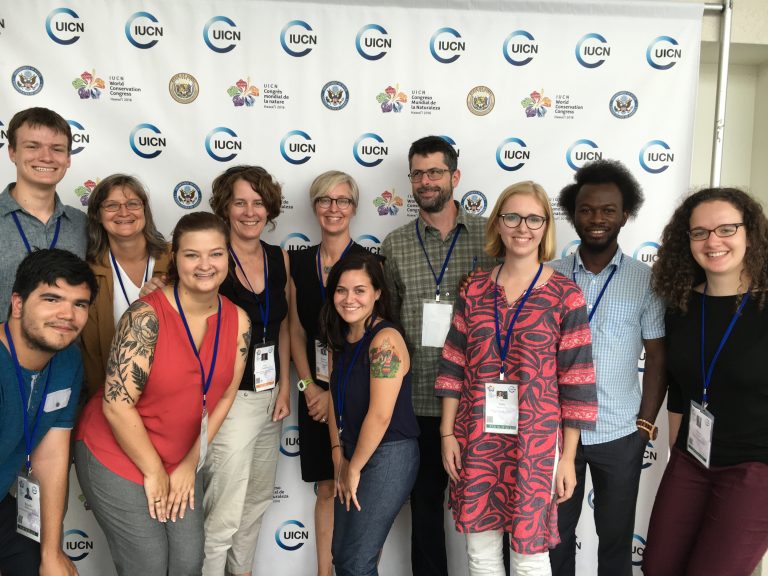
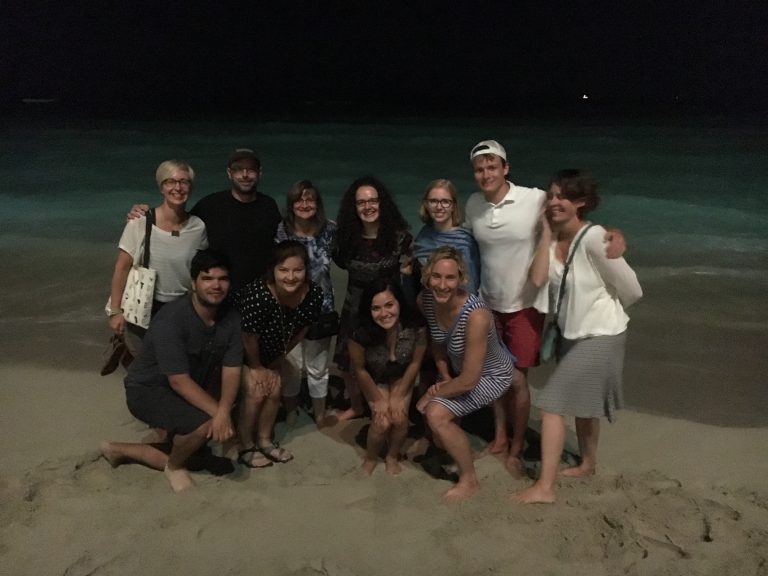
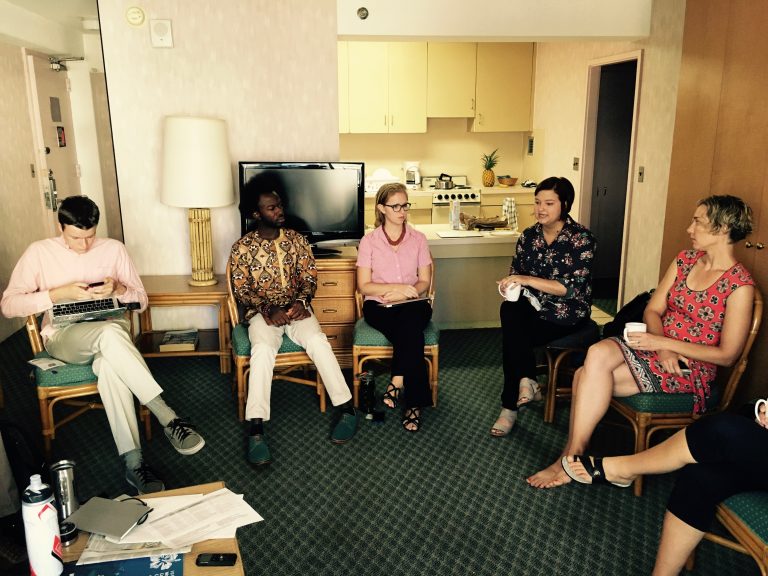
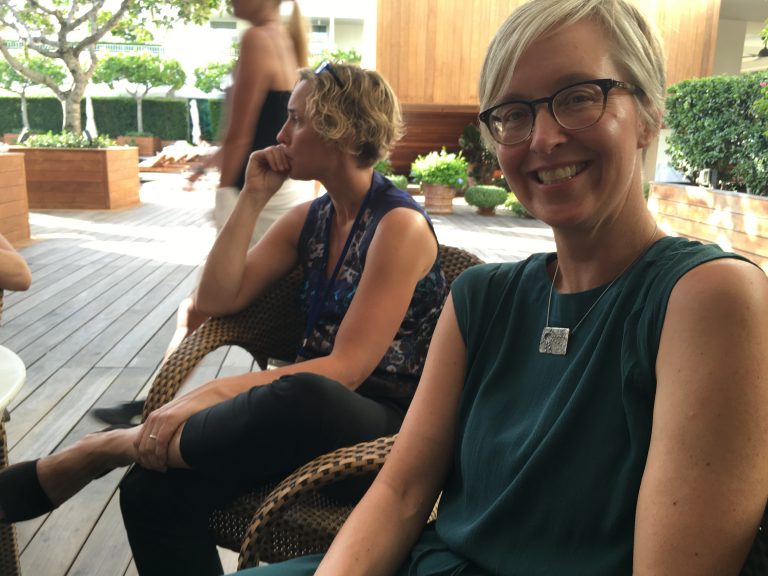
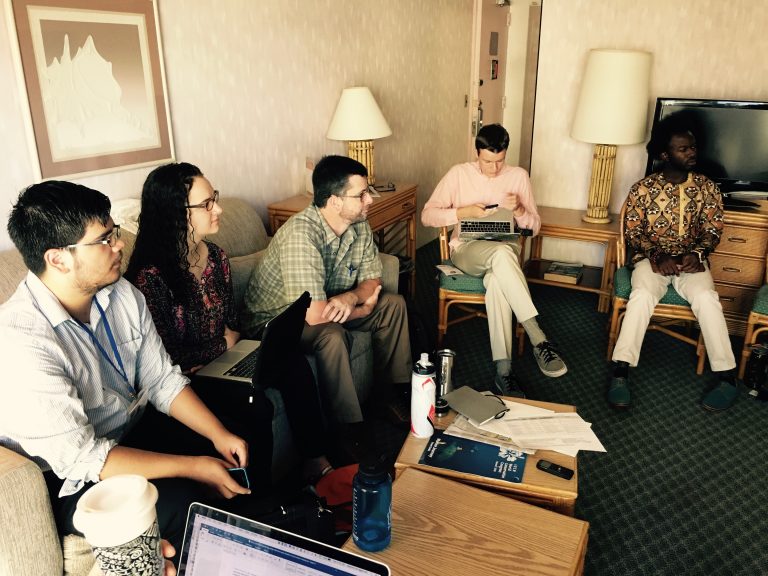
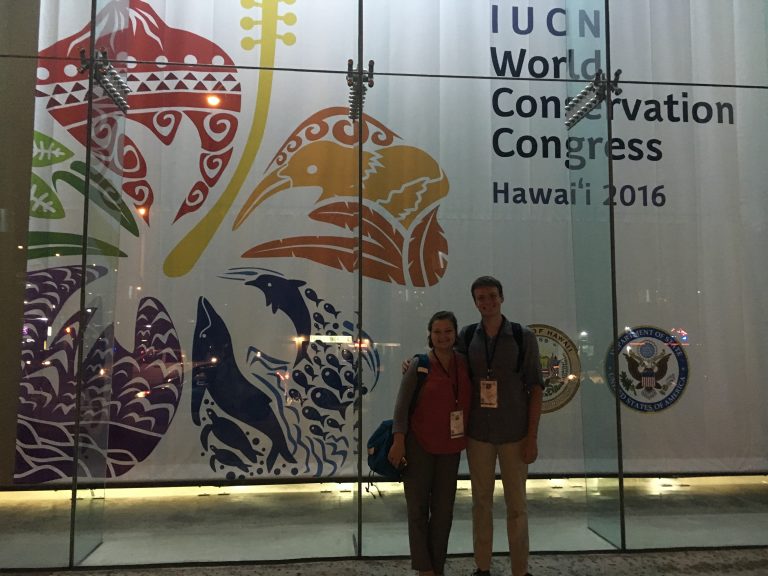
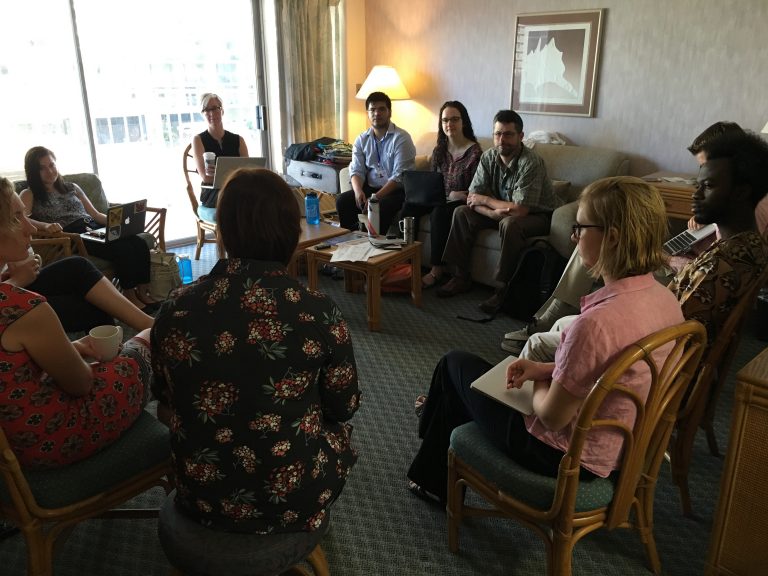
Evolving Methods
With core funding to support our work, and a large group of student participants, we undertook pre-event team-building and training, using a web-based curriculum. On-site, we coordinated overall team activities in daily meetings, and meetings of sub-groups. Following the event, we held two writing retreats.
An innovation in this iteration of CEE, we adopted a ‘cascade’ mentoring approach, to encourage and support interactions among researchers at different career stages and across institutions. For example, PhD researcher Sarah Bess Jones served as a mentor to undergraduates in the program, and undergraduates in Corson’s lab at Mount Holyoke, helped train undergraduates from Bucknell. This mentoring spilled over from the event itself; Flores-Ganley later received funding to support 6 weeks of research in Rapa Nui (Easter Island) as a research assistant to Sarah Bess Jones.
Key Collaborative Findings
Key collaborative findings increasing relate to the theory and methods of our work. For example, in Corson et al. (2019) we extend ideas of ‘assemblage’ not only to better understand global environmental governance, but our work in CEE to study it. In Gray et al. (2020) we reflect on our approach to collaborative research and our efforts over time to support ‘strong’ collaboration.
In addition, the long-standing marine sub-group used the WCC CEE to incorporate observations made across CEEs over time, specifically relating to the marine protected areas target (Campbell and Gray, 2019) and efforts to extend conservation territories to the high seas (Gray 2019).
IUCN Promotional Video
"Be a part of the action"
Funding
National Science Foundation award no.1560812, RUI: Collaborative Ethnography of Global Conservation Governance
Related Publications
Campbell, L.M. and Gray, N. 2019. “Area Expansion Versus Effective and Equitable Management in International Marine Protected Areas Goals and Targets.” Marine Policy 100: 192-199.
Corson, C., N. Gray, L. Campbell, and P. Wilshusen. 2019. Assembling Global Conservation Governance. Geoforum. 103: 56-65 doi: 10.1016/j.geoforum.2019.03.012
Corson, C., J. Worcester, S. Rogers, and I. Flores-Ganley, in prep. “From Paper to Practice: Making a Rights-Based Conservation Alliance.” Environment and Planning E.
Gray, N. 2018. “Charted Waters? Tracking the Production of Conservation Territories on the High Seas.” International Social Science Journal. pp. 257-272.
Gray, N., C. Corson, L. Campbell, P. Wilshusen, R. Gruby and S. Hagerman. 2020. “Doing Strong Collaborative Fieldwork in Human Geography”. Geographical Review. 110 (1-2): 117-132. doi: 10.1111/gere.12352
Wilshusen, P.R., 2019. “Environmental Governance in Motion: Practices of Assemblage and the Political Performativity of Economistic Conservation.” World Development. 124 (120). doi: 10.1016/j.worddev.2019.104626.